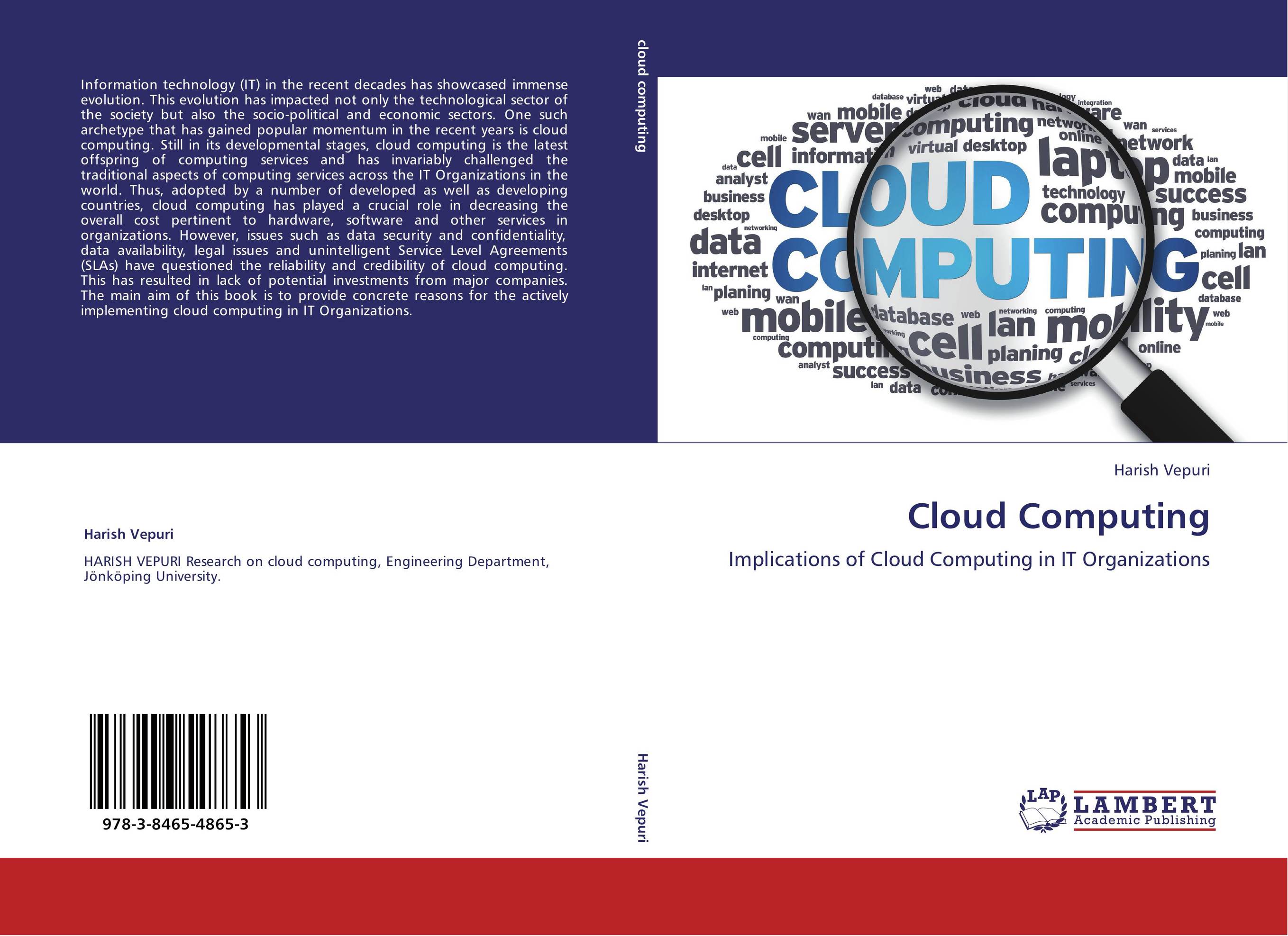| Поиск по каталогу |
|
(строгое соответствие)
|
- Профессиональная
- Научно-популярная
- Художественная
- Публицистика
- Детская
- Искусство
- Хобби, семья, дом
- Спорт
- Путеводители
- Блокноты, тетради, открытки
Cloud Computing. Implications of Cloud Computing in IT Organizations

В наличии
| Местонахождение: Алматы | Состояние экземпляра: новый |

Бумажная
версия
версия
Автор: Harish Vepuri
ISBN: 9783846548653
Год издания: 2012
Формат книги: 60×90/16 (145×215 мм)
Количество страниц: 108
Издательство: LAP LAMBERT Academic Publishing
Цена: 31495 тг
Положить в корзину
Позиции в рубрикаторе
Отрасли знаний:Код товара: 490092
| Способы доставки в город Алматы * комплектация (срок до отгрузки) не более 2 рабочих дней |
| Самовывоз из города Алматы (пункты самовывоза партнёра CDEK) |
| Курьерская доставка CDEK из города Москва |
| Доставка Почтой России из города Москва |
Аннотация: Information technology (IT) in the recent decades has showcased immense evolution. This evolution has impacted not only the technological sector of the society but also the socio-political and economic sectors. One such archetype that has gained popular momentum in the recent years is cloud computing. Still in its developmental stages, cloud computing is the latest offspring of computing services and has invariably challenged the traditional aspects of computing services across the IT Organizations in the world. Thus, adopted by a number of developed as well as developing countries, cloud computing has played a crucial role in decreasing the overall cost pertinent to hardware, software and other services in organizations. However, issues such as data security and confidentiality, data availability, legal issues and unintelligent Service Level Agreements (SLAs) have questioned the reliability and credibility of cloud computing. This has resulted in lack of potential investments from major companies. The main aim of this book is to provide concrete reasons for the actively implementing cloud computing in IT Organizations.
Ключевые слова: Cloud Computing, benefits, SaaS, IaaS, PaaS, Public Cloud, Private Cloud, Hybrid Cloud, Pay-as-you Use, and Risks.



